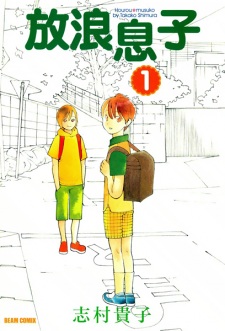Alternative TitlesSynonyms: The Transient Son Japanese: 放浪息子 More titlesInformationType: Manga
Volumes: 15
Chapters: 123
Status: Finished
Published: Nov 12, 2002 to Jul 12, 2013
Theme:
School
Demographic:
Seinen
Serialization:
Comic Beam Authors:
Shimura, Takako (Story & Art) Statistics Ranked: #4292 2 based on the top manga page. Please note that 'R18+' titles are excluded. Popularity: #624
Members: 30,915
Favorites: 1,307 Resources | Recommendations
|




























